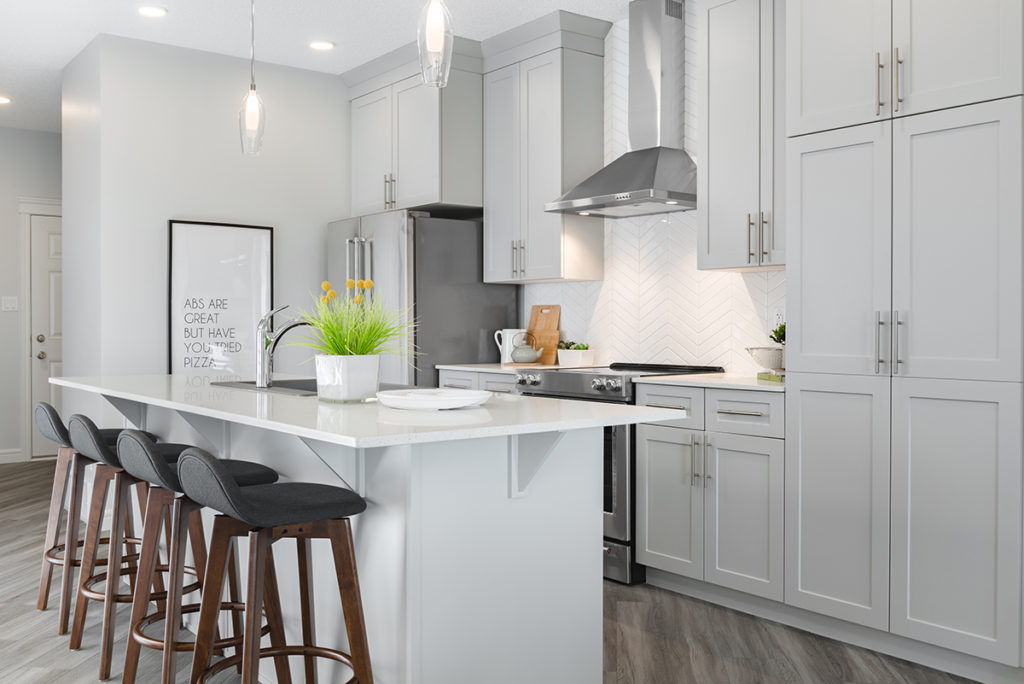
Before buying your new home, you should be aware of potential hidden costs, on top of the cost of your new home. One thing to keep in mind is these fees are approximate and most that will be listed are based on the average cost of a home in Edmonton in 2014, being $432,000, provided by research conducted by the Realtors Association of Edmonton.
Property Taxes
($3,299.15 per annum)
The Realtors Association of Edmonton says that the average cost of a home in 2014 was $432,000. Based on this price, property taxes would be $3,299.15 per year, or 274.93 per month (excluding potential increases in municipal and provincial education tax increases). Typically, one pays their property taxes once per year in June, however, one can also apply to be enrolled in the monthly payment plan.
Home Insurance
($915.00 per annum)
This is a difficult one to give you an estimate on because home insurance is extremely particular to the kind of home you have, down to your choice of flooring and furnishings. They take into account building materials, house size, lot size, the year your home was built, price, roof shape, and several other things. It also depends on what you want to be covered for. Some companies may choose not to cover certain things, like flood damage for example. So, it’s important to figure out what kind of coverage is right for you based on where and how you live.
Many companies will also give you a discounted rate when you purchase more insurance with them, such as auto insurance. A number of insurance companies will let you fill out the specifics online and give you a free quote online, like AMA.
With that all being said, an average price per annum, that isn’t unusual for a two-story single-family home, would be around $915. (Based on research by Canadian company InsurEye).
Closing Costs
Appraisal Fee
Your bank will sometimes hire an independent appraiser to determine the value of the property and whether it meets its lending criteria. This may or may not be required depending on the type of property being purchased. Talk to your bank to find out if this is applicable to you.
Lawyer/Legal Fees
($1,500)
You will be required to retain a lawyer or notary to act for you in the purchase and mortgaging of your property, and you will also be responsible for payment of all related fees and disbursements. Fees for these services may vary significantly, so you may wish to shop around before making your decision. It is typical in Alberta to pay at least $1,500 for legal fees, disbursements, and title insurance.
Realtor Commissions
(Optional) $15,000
This varies amongst agencies/agents and may not necessarily be applicable. Many people choose to purchase without realtors, which can be done and will save you some cash. Typically, realtors will charge 7% commission for the first $100,000, and a rate around 2.5% for the balance. Given the average house price in Edmonton of $432,000, this would work out to being around $15,300.
Land Transfer Tax (Title Transfer Fees)
($136.00)
Most provinces levy a one-time tax (sometimes called the “Welcome Tax”) based on a percentage of the purchase price of the property. Fortunately, Albertan homebuyers pay a relatively small land transfer tax in comparison to other provinces. There’s a $50 base fee, plus an additional $1 per every $5000 of your housing cost.
Mortgage Life Insurance
(Optional…depending)
This isn’t necessary but it is something to consider. This insurance takes care of your mortgage, in the case you suddenly pass away, so that your family doesn’t have to. This is also dependent on what company your mortgage is through. Some companies require this as part of the mortgage approval.
Utilities
($2,700 per annum)
Gas/Electricity
Your home in Alberta will probably be heated by a natural gas-powered furnace, which blows hot air through vents circulating throughout the house. Alberta’s cold winters mean that winter bills are significantly higher than summer bills. For a standard single-family home, you can expect total monthly electrical and gas bills ranging from $280 – $350 per month in the coldest months, to $100 -$250 in the summer months.
Water/Sewer
Typically, allow $70 – $140 a month depending on how much water you and your family uses. This cost is added to either your power or water bill, depending on who you use.
Moving Costs
(depends on the company and times)
Moving can be done three ways: using a truck – either yours or a friend, renting a U-Haul truck, or hiring movers. The latter option is, of course, the most expensive. A lot of people will rent their own U-Haul and move with the help of friends, which saves you quite a bit of money. But if you believe time is money, then it may be best to go with professional movers. The price depends on the movers, how far you’re moving, and how much you have. For a one day move within the city, you’re looking at a minimum price of $1,000.
Furniture Upgrades
If you’re moving into your new home, and you want new furniture to compliment the space, you may be looking at quite a bit of money. A new living room furniture set is around $3,000 to start. Appliances etc. in addition would put you well beyond that. We feel the key is to upgrade your furniture over time.
Landscaping/Fencing
From putting in grass, or a rock bed, landscaping costs vary greatly depending upon the company you choose and the amount of work/quality of the work you want done. In new areas, there are certain conditions you’ll need to meet like a specific number of trees or shrubs. Plus, you usually have a time limit on when your landscaping needs to be completed by (which does take the seasons into account). Many people will leave this until later, but some may want to get it done and out of the way immediately.
Upgrades (Pre-owned Home)
If you’re purchasing a new home, there won’t be a need to upgrade materials. However, if you’re purchasing a pre-owned home, you might want to consider upgrades of all kinds. Maybe you want a larger hot water tank, or to simply get rid of the outdated wall coverings. Whatever needs to be done, you need to account for it in your finance sheet.
Not everything will need to be paid at the same time. Things like your mortgage life insurance are built into your monthly costs, the same goes for your utilities. You may not have to worry about any landscaping or fencing. Knowing about these hidden costs, and being prepared for them ensures there are no surprises for your bank account.
Photo credit

